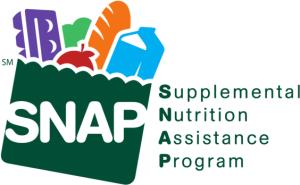 In December 2019, Secretary of Agriculture Dr. Sonny Perdue announced that the Department would cease allowing waivers extended by states to unemployed able-bodied recipients between the ages of 18 and 49. It is estimated that approximately 700,000 citizens will become ineligible for SNAP benefits. These include 400,000 in California; 100,000 in Pennsylvania, and the remainder spread among states with depressed economies including Louisiana, Illinois, Michigan, and Nevada.
In December 2019, Secretary of Agriculture Dr. Sonny Perdue announced that the Department would cease allowing waivers extended by states to unemployed able-bodied recipients between the ages of 18 and 49. It is estimated that approximately 700,000 citizens will become ineligible for SNAP benefits. These include 400,000 in California; 100,000 in Pennsylvania, and the remainder spread among states with depressed economies including Louisiana, Illinois, Michigan, and Nevada.
Campbell Robertson, writing in The New York Times on January 13th, cited a study in Cabell County in West Virginia where there is extreme poverty are there are few jobs to maintain eligibility.
Restrictions imposed during the recent past have resulted in greater demands on homeless missions and food pantries. The need for assistance will only increase despite limited resources and donations. In 1996 Federal law placed a limit on SNAP support for able-bodied adults who were restricted to benefits for three months in a three-year period if not working or in training for 20 hours per week. Many states, including California and Pennsylvania, have operated under a USDA waiver allowing relaxation of requirements in case of need. This concession will be now be withdrawn.
In announcing the USDA p olicy on SNAP, Secretary Perdue justified the decision as an effort “to restore the dignity of work”. Given the non-availability of jobs and training programs in depressed areas of the nation including Eastern Ohio, West Virginia, Nevada, New Mexico, and Colorado among others, the social experiment to be enacted by USDA will have no direct benefit on dignity, but will impose suffering on the poor and especially children. Regrettably, what may be considered beneficial within the confines of the DC Beltway, may not be practical in the mountains of Appalachia and the deserts of the far west where vulnerable populations face challenges to survival.
olicy on SNAP, Secretary Perdue justified the decision as an effort “to restore the dignity of work”. Given the non-availability of jobs and training programs in depressed areas of the nation including Eastern Ohio, West Virginia, Nevada, New Mexico, and Colorado among others, the social experiment to be enacted by USDA will have no direct benefit on dignity, but will impose suffering on the poor and especially children. Regrettably, what may be considered beneficial within the confines of the DC Beltway, may not be practical in the mountains of Appalachia and the deserts of the far west where vulnerable populations face challenges to survival.
Structured studies have shown that reducing SNAP benefits has no effect on employment rates in many areas where there are no job opportunities available.
Removing 700,000 recipients of SNAP benefits from the USDA roll will also have an indirect impact on demand for agricultural products. This indirect consequence has been highlighted by the American Farm Bureau Federation and other commodity associations.